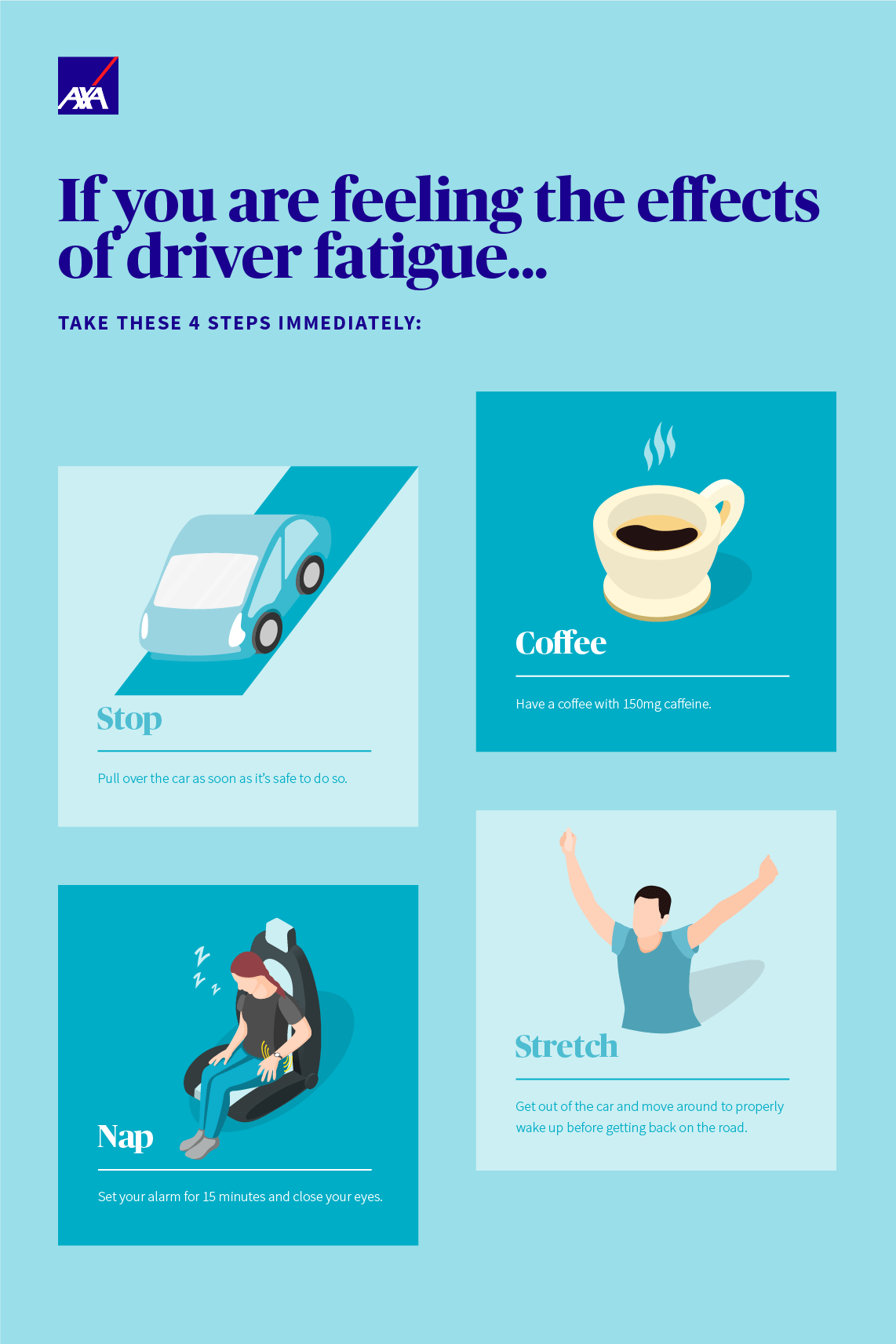Driving while tired can be just as dangerous as driving under the influence or speeding excessively on the roads. Follow these tips to stay alert on the road and to make your car journey as safe as possible.
It's an all too common situation. Sitting behind the wheel of a car on a long journey. You’ve been driving for a while and reaching your destination is the only thing on your mind. You’re cruising along with the radio on but before you know it, you start drifting. A wave of tiredness subtly washes over you. When you don’t have too far left to go on your journey, it’s far too tempting to try to power through. You tell yourself you’ll be grand but, in reality, you might not be.
Stats from the RSA show that driver fatigue plays a role in as many as 1 in 5 driver deaths across the island of Ireland every year and when it comes to nodding off at the wheel, 28% of Irish motorists have admitted to falling asleep while driving. So, what is driver fatigue? Why do we get it? What do we do when it hits and, most importantly, how do we prevent it?

What is driver fatigue?
We’re so accustomed to using phrases like ‘tired’, ‘wrecked’ or ‘exhausted’, that the word fatigue is often more associated with the medical world. Basically, it means extreme exhaustion due to a lack of quality sleep over a period of time. Driver fatigue impacts you both physically and mentally, which in turn can impair your driving if you are faced with fatigue while driving.
Who is at risk?
The typical adult needs 7 to 8 hours of sleep per night. If you get less sleep than this, you’re at a higher risk of being involved in a crash. In addition to people with inadequate sleep, the following groups of people are also at great risk of being involved in an accident: commercial drivers, people working nights, those who require a significant amount of road use, people taking prescription medicine, and those driving at a time when they would usually be sleeping.
What are the symptoms?
Whether a driver or a passenger, it’s important to recognise the signs of driver fatigue as spotting them in yourself or someone else may prevent a collision. There’s an array of different indicators to look out for including heavy or sore eyes, yawning, restlessness, impatience, lack of concentration or zoning out, as well as abnormal driving behaviour and slow reactions. If you find yourself forgetting the last few minutes of your drive, nodding your head, rubbing your eyes or starting to feel drowsy you could be suffering from driver fatigue and it’s important that you take immediate action.
What do I do if I get driver fatigue while on the road?
The first thing you need to do when you feel fatigued while driving is to pull over as soon as it’s safe to do so. Driver fatigue impairs your judgement, so when you recognise it, make stopping a priority. Ensure you’re pulling over somewhere safe, like a designated lay-by, service station or a place where you can get a coffee and take a nap. By the time you wake up, the kick from the caffeine should have set in. Before setting off you should stretch your legs, get some fresh air and make sure you're properly awake before hitting the road again. Don’t drive if you’re still in a post-sleep daze. Taking these steps should give you another hour on the road.
It’s important to remember that these steps are not an overall fix for a considerably longer trip, so if you still have a long drive ahead you may need to stop and take a longer nap or stop your journey for the day and book into a hotel to get rest before continuing your journey the next day.
When you’re back on the road, it's important to take your time and ensure you keep your car cool because if your car is too warm this can make you sleepy again. Look out for the symptoms of fatigue as you continue on your journey and, whatever you do, don’t try and fight the sleep. According to the Road Safety Authority, fighting sleep while driving is the same as driving over the legal alcohol limit and driving while tired puts your life and the lives of others at risk.
How can I avoid driver fatigue?
The best way to combat driver fatigue is to ensure that you get the required 7 to 8 hours of quality sleep a night. For many people this is easier said than done, for example, new parents with a baby in the house and people who work irregular shift patterns may find it difficult to get a full night’s sleep, however, it is important to make a conscious effort to get as much rest as possible the night before a long drive.
As well as this, recognising the symptoms of driver fatigue and taking appropriate action could not only save your life but the lives of others.


